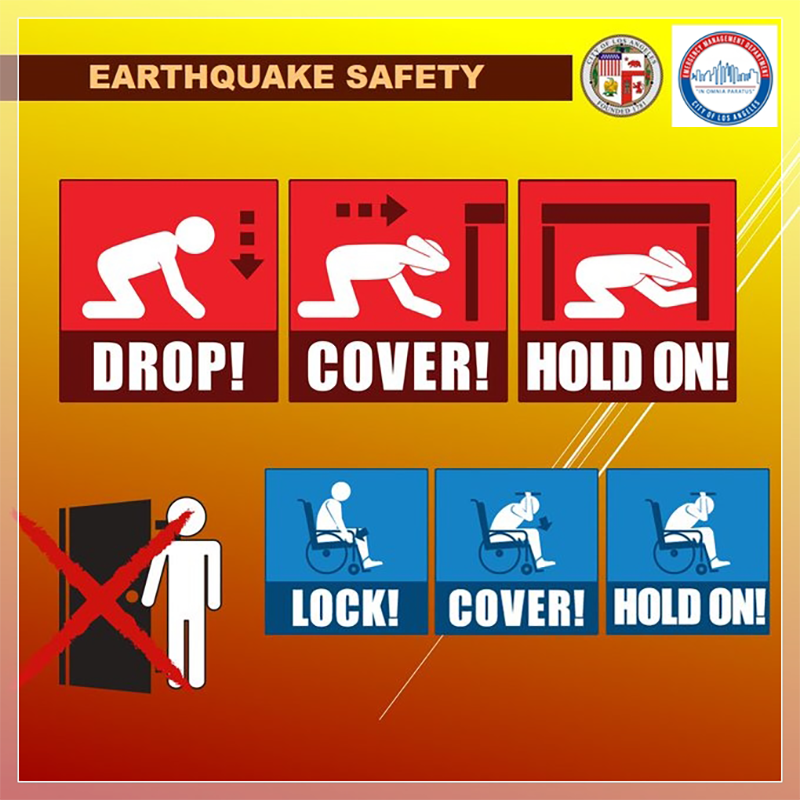December TEFRA
NOTICE OF PUBLIC HEARING ONMULTIFAMILY HOUSING REVENUE BONDS OR NOTESFOR


Minor earthquake shake-ups remind us that we live in earthquake country, but when a major seismic event hits, will you and your loved ones be prepared for it? Here are some things you can do to prepare:
For more information on how to be prepared, including details on the Great California ShakeOut earthquake drill in October, please visit: https://www.earthquakecountry.org/ and https://www.shakeout.org/california/

NOTICE OF PUBLIC HEARING ONMULTIFAMILY HOUSING REVENUE BONDS OR NOTESFOR
LAHD is seeking proposals for the provision of capacity-building and
LAHD is seeking one individual or firm qualified to provide
LAHD is seeking proposals for the provision of web and
NOTICE OF PUBLIC HEARING ONMULTIFAMILY HOUSING REVENUE BONDS OR NOTESFOR
NOTICE OF PUBLIC HEARING ON MULTIFAMILY HOUSING REVENUE BONDS OR
LAHD is seeking proposals for qualified organizations/contractors to provide temporary
NOTICE OF PUBLIC HEARING ON MULTIFAMILY HOUSING REVENUE BONDS OR
LAHD is seeking proposals for the provision of tenant relocation
As part of the City’s commitment to fair housing and
LAHD is seeking proposals for qualified organizations / contractors to
LAHD is seeking proposals for the provision of housing administrative
NOTICE OF PUBLIC HEARING ON MULTIFAMILY HOUSING REVENUE BONDS OR
The Los Angeles Housing Department is on the move and
LAHD is seeking proposals for the provision of consulting services
The Los Angeles Housing Department (LAHD) is pleased to announce
LAHD is seeking proposals for the provision of tenant outreach
Application opening date: Friday, November 3, 2023 Submission deadline: Friday,
LAHD and the Housing Authority of the City of Los
LAHD is seeking proposals for the provision of HOPWA services.
LAHD is seeking proposals for the provision of Urgent Repair
The Los Angeles Housing Department (LAHD) has posted the Affordable
LAHD is seeking proposals for the provision of information technology
LAHD is seeking proposals for the provision of occupancy monitoring
LAHD is seeking proposals for the provision of OSHA staff
LAHD is seeking proposals for the provision of site-design analysis
The Los Angeles Housing Department (LAHD) is pleased to announce
The Los Angeles Housing Department (LAHD) has posted the Questions
The Los Angeles Housing Department has posted the Questions and
The Los Angeles Housing Department has posted the Questions and
LAHD is seeking proposals for the provision of outreach services.
The Los Angeles Housing Department (LAHD) is pleased to announce
LAHD is seeking proposals for the provision of information systems,
The Los Angeles Housing Department (LAHD) is pleased to announce
LAHD is seeking proposals for the provision of various technical
LAHD is seeking proposals for the provision of relocation consultant
LAHD is seeking proposals for the provision of prevailing wage
The Los Angeles Housing Department (LAHD) is pleased to announce
The CA COVID-19 Rent Relief program will stop accepting new
LAHD seeks to solicit proposals from qualified vendors for the
LAHD is soliciting proposals from qualified contractors to provide services
To schedule an appointment at one of our 5 different
To strengthen partnerships and improve collaboration with our affordable housing
The Los Angeles Housing Department (LAHD) recognizes the COVID-19 pandemic
The City of Los Angeles, in partnership with the State
LAHD is resuming its inspection services. LAHD will commence deploying
ATTN: Landlords! To better serve you, LAHD is offering “How
As a result of the Coronavirus (COVID-19) and the Mayor’s
City of Los Angeles 2023 – 2028 Assessment of Fair